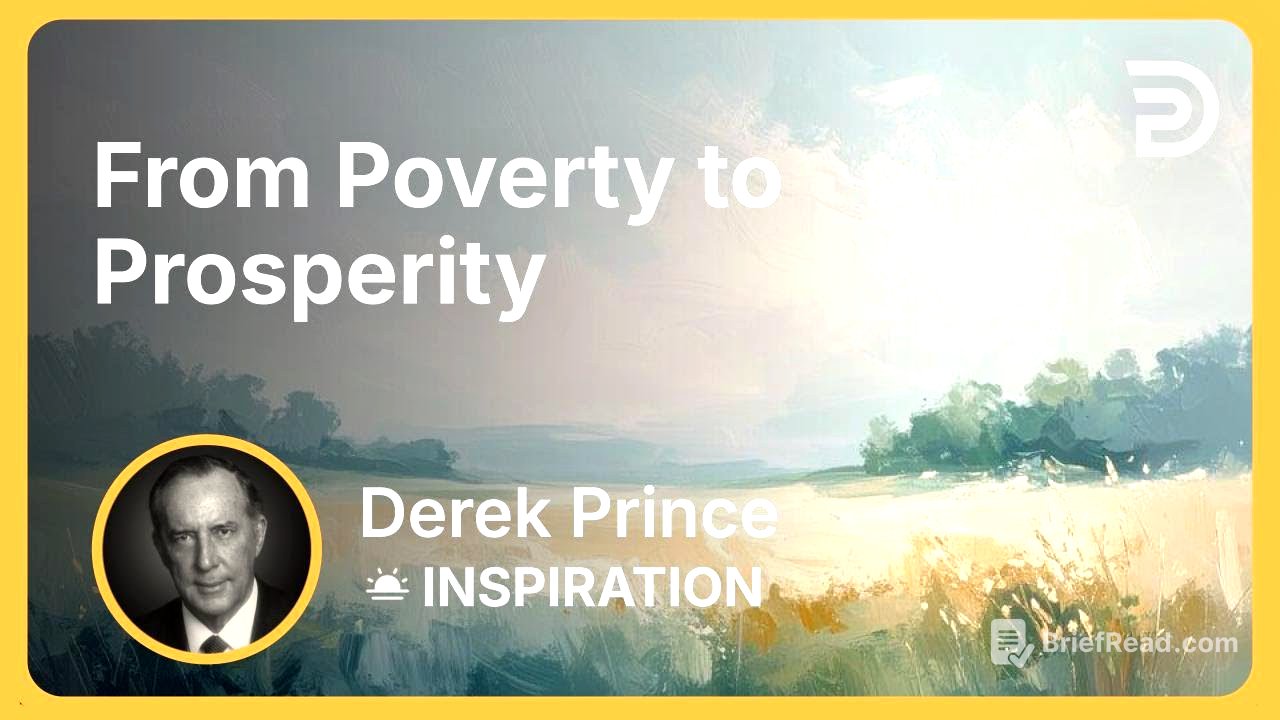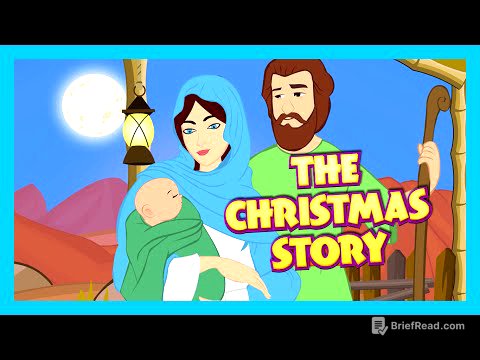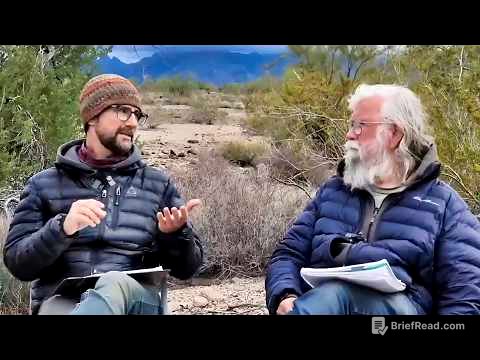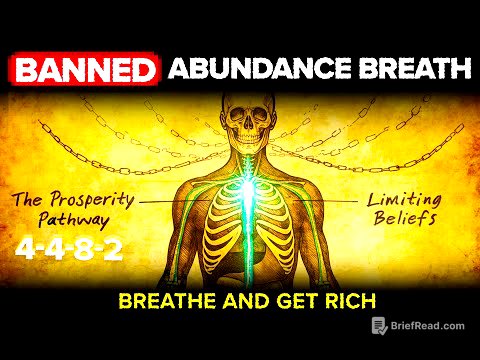TLDR;
Derek Prince discusses how Jesus endured the curse of poverty to provide believers with the blessing of prosperity. He references Deuteronomy 28 to illustrate the curses associated with disobedience, such as hunger, thirst, nakedness, and lack of all things, contrasting them with God's will for His people to have abundance and serve Him with joy. He shares a personal revelation of Jesus's suffering on the cross, emphasizing how Jesus bore the poverty curse. He uses 2 Corinthians 8:9 and 9:8 to support the New Testament confirmation of this exchange, highlighting grace as the means through which believers can receive abundance for good works, moving from being mere receivers to joyful givers.
- Jesus endured the curse of poverty to provide believers with prosperity.
- Disobedience leads to curses like hunger and lack, while God desires abundance for His people.
- The exchange of poverty for prosperity is confirmed in the New Testament through grace.
Introduction: Poverty and Prosperity as a Curse and Blessing [0:05]
Derek Prince introduces the concept of poverty as a curse under the broken law, from which Jesus redeemed believers to grant them the blessing of prosperity. He encourages listeners to examine Deuteronomy 28, distinguishing between blessings and curses, and to assess whether they are experiencing blessings or curses in their lives. He asserts that as redeemed children of God, believers should be enjoying blessings, not enduring curses.
Curses of Poverty in Deuteronomy 28 [1:13]
Prince refers to Deuteronomy 28, highlighting the curses that befall those who disobey God's commands. These curses include being cursed in both urban and rural settings, cursed agricultural yields, and a general state of adversity in all aspects of life. Specifically, verse 29 mentions groping in darkness and not prospering, which he identifies as a curse. Verses 47 and 48 state that failure to serve God with joy and gladness for the abundance of all things leads to serving enemies in hunger, thirst, nakedness, and lack of all things, which is a state of total poverty.
God's Will: Abundance vs. Poverty [2:43]
Prince explains that God's will for His people is to serve Him with joy and a glad heart, experiencing abundance in all things, which means having enough for oneself and extra to share with others. He emphasizes that it is more blessed to give than to receive, and God wants His people to experience this greater blessing through abundance. The alternative to this is the curse of serving enemies in hunger, thirst, nakedness, and lack of all things, which represents absolute poverty.
Personal Revelation: Jesus on the Cross [4:17]
Prince shares a personal experience where the Holy Spirit revealed to him the reality of Jesus's suffering on the cross. He saw Jesus stripped naked, forsaken, and enduring hunger, thirst, and lack of all things. Jesus was in absolute poverty, even being buried in a borrowed tomb. This revelation helped Prince attain a greater level of faith in God's financial and material provision, understanding that Jesus exhausted the poverty curse on the cross so that believers could receive the blessing of prosperity.
New Testament Confirmation: 2 Corinthians 8:9 [5:58]
Prince references 2 Corinthians 8:9, emphasizing the word "grace." This verse explains that though Jesus was rich, He became poor for our sakes, so that through His poverty, we might become rich. This confirms the exchange of poverty for prosperity in the New Testament. Jesus's absolute poverty on the cross—hunger, thirst, nakedness, and lack of everything—was the means by which believers can attain the abundance that is the legitimate blessing of obedience to God's law.
The Outworking of Grace: 2 Corinthians 9:8 [7:01]
Prince quotes 2 Corinthians 9:8, highlighting God's ability to make all grace abound to believers, so that in all things, at all times, having all that they need, they will abound in every good work. He notes the repetition of "all" and "abound" in the original Greek, underscoring God's abundance. Prosperity means having all that you need, while abundance means having more than you need, enabling believers to give and share with others. This is not for selfish gratification but to enjoy the greater blessing of giving. Many Christians miss this blessing because they have not entered into God's abundance, provided through Jesus's death. This provision of grace came through Jesus Christ, not through earning it, but through receiving it by faith and meeting the conditions.









